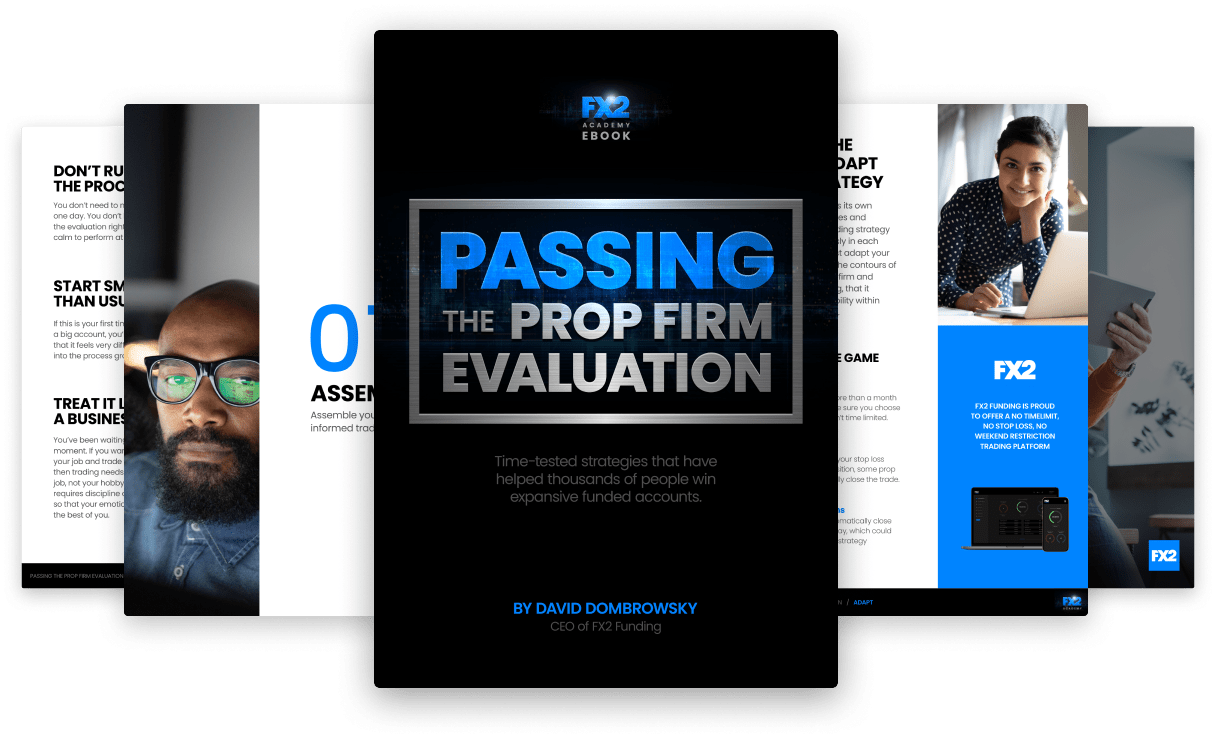The Key to Consistently Successful Trading
Trading in financial markets is an inherently emotional endeavor, with the potential for significant gains or losses. Successful traders must develop emotional discipline, which involves recognizing and managing the powerful emotions that can influence decision-making. Emotional discipline is crucial for maintaining objectivity, avoiding impulsive decisions, and adhering to a well-designed trading plan.
The Intersection of Psychology and Trading
Trading is not just about numbers, charts, and market movements; it’s deeply influenced by psychological factors that can significantly impact a trader’s performance. Understanding the interplay between psychology and trading is crucial for achieving consistent success in the financial markets.
Psychological Drivers of Market Behavior
Market behavior is often driven by the collective psychology of traders and investors. These psychological drivers can create market trends, influence price movements, and lead to the formation of bubbles or crashes. Here are some key psychological drivers of market behavior:
- Fear and Greed. These two emotions are powerful forces in the market. Fear can drive investors to sell off assets prematurely, causing prices to plummet, while greed can lead to overbought conditions as traders continue to buy in hopes of higher profits.
- Herd Mentality. This occurs when traders follow the actions of the majority, often leading to market bubbles or crashes. When a large group of investors acts on similar information or sentiment, it can drive significant price movements.
- Overconfidence. Traders often overestimate their knowledge or abilities, leading to excessive risk-taking and potentially significant losses. Overconfidence can result in neglecting proper risk management and ignoring warning signs.
- Confirmation Bias. Traders tend to seek out information that confirms their existing beliefs while disregarding contradictory evidence. This bias can lead to holding onto losing positions for too long or entering trades based on incomplete information.
- Loss Aversion. This is the tendency to prefer avoiding losses over acquiring equivalent gains. It can cause traders to hold onto losing positions in the hope of a rebound, often leading to greater losses.
Understanding these psychological drivers is the first step in mitigating their impact. Recognizing that market movements are not purely based on rational decisions, but also on collective emotional responses, can help traders make more informed choices.
Role of Emotional Discipline in Trading Success
Emotional discipline is the ability to manage emotions and maintain a consistent approach to trading, regardless of market conditions. It’s a critical component of trading success for several reasons:
- Maintains Objectivity. Emotional discipline helps traders remain objective and stick to their trading plan. By controlling emotional responses, traders can avoid impulsive decisions that often lead to losses.
- Enhances Risk Management. With emotional discipline, traders are better equipped to follow risk management rules, such as setting stop-loss orders and adhering to position sizing strategies. This discipline helps in minimizing losses and protecting capital.
- Improves Decision-Making. Traders with emotional discipline can make decisions based on analysis and strategy rather than on emotions like fear or greed. This leads to more rational and calculated trades.
- Sustains Long-Term Success. Consistency is key to long-term trading success. Emotional discipline ensures that traders stick to their strategies and make adjustments based on performance metrics rather than emotional reactions.
- Reduces Stress. Trading can be stressful, especially during volatile market conditions. Emotional discipline helps traders manage stress effectively, maintaining a clear mind and better overall well-being.
Emotional discipline is not innate; it’s a skill that can be developed through practice and conscious effort. By focusing on cultivating this discipline, traders can significantly improve their performance and achieve more consistent results.
Methods for Control and Consistency
Achieving control and consistency in trading requires implementing strategies and practices that build resilience against emotional biases and address key challenges. Here’s how traders can cultivate these essential qualities:
Cultivating Resilience Against Emotional Biases and Impulses
Resilience in trading involves the ability to withstand and recover from market volatility and personal setbacks. Here are some strategies to cultivate resilience:
- Develop a Solid Trading Plan. A comprehensive trading plan that outlines your goals, strategies, risk management rules, and criteria for trade entry and exit is crucial. Having a plan helps reduce the influence of emotions on trading decisions.
- Practice Mindfulness and Stress Management. Techniques such as mindfulness meditation, deep breathing exercises, and regular physical activity can help traders manage stress and maintain emotional balance. Being mindful of your emotional state can prevent impulsive decisions.
- Keep a Trading Journal. Documenting your trades, including the reasons for entering and exiting positions, as well as your emotional state during trades, can provide valuable insights. Reviewing your journal helps identify patterns and areas for improvement.
- Set Realistic Expectations. Understanding that losses are a natural part of trading and that no trader wins 100% of the time can help manage expectations. Realistic goals reduce pressure and help maintain a level-headed approach.
- Continuous Learning and Adaptation. The markets are constantly changing, and successful traders are those who continuously learn and adapt. Stay informed about market trends, new strategies, and psychological principles to improve your trading skills.
Addressing Key Challenges Hindering Emotional Discipline
Several challenges can hinder emotional discipline in trading. Addressing these challenges is essential for maintaining consistency and control:
- Fear of Missing Out (FOMO). FOMO can lead to impulsive trades and overtrading. To combat this, remind yourself that there will always be new opportunities in the market. Stick to your trading plan and avoid chasing trends.
- Revenge Trading. Trying to recover losses quickly by making aggressive trades often leads to further losses. Accepting losses and moving on without letting emotions drive your decisions is crucial. Focus on your long-term strategy rather than short-term recoveries.
- Confirmation Bias. To avoid confirmation bias, seek out information that challenges your views. Evaluate all evidence objectively and be willing to change your opinion based on new information. Diversify your sources of information to get a balanced perspective.
- Overconfidence. Overconfidence can be mitigated by regularly reviewing and analyzing your trades. Acknowledge mistakes and learn from them. Setting strict risk management rules and sticking to them can help keep overconfidence in check.
- Impatience. Trading requires patience and waiting for the right opportunities. Practice patience by setting specific criteria for entering and exiting trades and not deviating from them. Remember that forced trades often lead to poor outcomes.
- Emotional Fatigue. Trading can be emotionally draining, leading to fatigue and poor decision-making. Take regular breaks to recharge and maintain a healthy work-life balance. Ensure you have downtime to prevent burnout.
By addressing these challenges and implementing strategies to cultivate resilience, traders can enhance their emotional discipline, leading to more consistent and successful trading performance.
Emotional discipline is a critical component of successful trading, and various tools and techniques can help traders develop and maintain this discipline. By integrating these tools into their trading routines, traders can enhance their decision-making processes and achieve more consistent results.
Crafting a Comprehensive Trading Strategy for Decision-Making Guidance
A comprehensive trading strategy serves as a blueprint for making informed and disciplined trading decisions. Here’s how to craft one:
- Define Your Goals. Start by outlining your short-term and long-term trading goals. These goals should be specific, measurable, achievable, relevant, and time-bound (SMART).
- Determine Your Risk Tolerance. Assess how much risk you are willing to take on each trade and overall. This involves setting maximum loss limits and determining the size of each trade relative to your total capital.
- Develop Entry and Exit Criteria. Establish clear criteria for entering and exiting trades based on technical analysis, fundamental analysis, or a combination of both. This can include indicators such as moving averages, support and resistance levels, and economic news.
- Incorporate Risk Management Rules. Integrate risk management strategies into your plan, such as setting stop-loss and take-profit orders, position sizing, and diversification.
- Backtest and Refine Your Strategy. Use historical data to backtest your strategy and refine it based on the results. This helps identify potential weaknesses and areas for improvement.
For specific trading strategies, you can explore our detailed guide on scalping trading strategies.
Ready to craft a comprehensive trading strategy for better decision-making?
Explore our funded account programs and take your trading to the next level.
Techniques for Emotional Regulation in Trading
Maintaining emotional regulation is crucial for making rational decisions and avoiding impulsive trading. Here are some effective techniques:
- Mindfulness Meditation. Practicing mindfulness meditation helps traders become more aware of their thoughts and emotions, allowing them to manage stress and stay focused. Daily meditation can improve emotional regulation and reduce anxiety.
- Breathing Exercises. Simple breathing exercises can help calm the mind and body during stressful trading moments. Techniques such as deep breathing, box breathing, or the 4-7-8 method can be effective.
- Physical Exercise. Regular physical activity can reduce stress and improve overall well-being. Exercise releases endorphins, which are natural mood lifters, and helps clear the mind, making it easier to handle trading pressures.
- Positive Visualization. Visualizing successful trades and a calm trading environment can help build confidence and reduce negative emotions. Spend a few minutes each day visualizing your trading plan in action and achieving your goals.
- Journaling. Keeping a trading journal where you document your trades, thoughts, and emotions can provide valuable insights into your psychological state. Reviewing your journal helps identify emotional patterns and triggers, allowing you to address them proactively and avoid psychological trading traps.
- Regular Breaks. Taking regular breaks from trading can prevent burnout and reduce stress. Step away from the screen to relax and recharge, ensuring that you return with a fresh perspective and a clear mind.
- Professional Support. Sometimes, talking to a professional psychologist or a trading coach can help address deep-seated emotional issues that impact trading performance. Professional support can provide strategies and tools tailored to your specific needs.
Reinforcing the Importance of Emotional Discipline in Trading Success
Emotional discipline is not just a supplementary skill in trading; it is a cornerstone of consistent success. Here’s why reinforcing emotional discipline is crucial:
Emotional discipline ensures that traders stick to their strategies and make decisions based on logic and analysis rather than emotions. This leads to sustained performance over time, as traders avoid the pitfalls of impulsive and irrational decisions.
Risk Management
Effective risk management is inherently tied to emotional discipline. Traders who can control their emotions are more likely to adhere to their risk management rules, such as setting appropriate stop-loss levels and avoiding overleveraging. This helps protect their capital and minimize losses.
Adaptability
Markets are constantly changing, and traders need to adapt to new conditions. Emotional discipline allows traders to remain flexible and open to adjustments in their strategies without being swayed by fear or greed. This adaptability is key to long-term success in the dynamic trading environment.
Psychological Resilience
Building emotional discipline fosters psychological resilience, enabling traders to handle the inevitable ups and downs of trading. Resilient traders can bounce back from losses, learn from their experiences, and continue to improve their skills.
Confidence and Clarity
Traders with strong emotional discipline exhibit greater confidence and clarity in their decision-making. They trust their strategies and are less likely to second-guess themselves, leading to more decisive and effective trading actions.
Long-Term Success
Ultimately, emotional discipline is essential for achieving long-term success in trading. It helps traders maintain consistency, manage risks effectively, and continuously improve their performance. By prioritizing emotional discipline, traders can navigate the complexities of the market with greater ease and confidence.
Conclusion
Emotional discipline is a critical component of trading psychology that directly impacts a trader’s success. By crafting a comprehensive trading strategy, implementing techniques for emotional regulation, and reinforcing the importance of emotional discipline, traders can enhance their decision-making processes and achieve consistent success in the financial markets.






